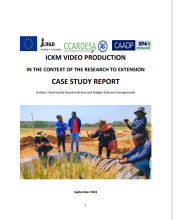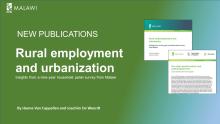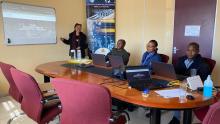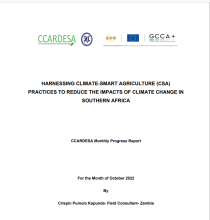BACKGROUND:Thispaperdocumentsfarmerperceptionsandmanagementpracticesforfallarmyworm(Spodopterafrugiderda J.E.Smith),providingabaselineforthedevelopmentofsustainablepestmanagementstrategies.
RESULTS:91%offarmerscorrectlyidentifiedfallarmyworm,andreporteditasthemostimportantmaizepestduring2016/2017 cropping season, affecting nearly half of cultivated area. Estimated maize yield loss during the season, attributed to fall armywormwas28%.Amajorityoffarmers(60%)usedpesticidesforfallarmywormcontrol,alongwithothercultural/physical practices – handpickingandcrushingeggmasses/caterpillars(36%),andapplicationofash/sandinthefunnel(19%).Farmers usedvariouspesticideactiveingredients,andprotectivemeasureswereinadequate;>50%offarmersdidnotuseanyprotective measures while spraying. Significantly more male than female farmers used pesticides (P=0.05), and the reverse was true for culturalpractices.Significantmaizeyielddifferences(P=0.001)wereobservedbygender,attributedtodifferencesinutilization of production inputs/practices. At least 77% of farmers received and shared agricultural advice, which can be optimized to spreadinformationonfallarmywormmanagementoptions.
CONCLUSION: Increased use of pesticides to manage fall armyworm poses health and environmental risks, besides the high cost for farmers and governments. Research into cultural and indigenous practices used by farmers will offer opportunities for alternative and sustainable management practices. Research efforts should pay attention to gender differences in access to resources and inputs. Tackling fall armyworm at the farm level, and averting yield losses will require integrated messaging addressingotherproductionrisks.
The United Kingdom (Department for International Development), China (Chinese Ministry of Agriculture), Australia (Australian Centre for International Agricultural Research), Canada (Agriculture and Agri-Food Canada), Netherlands (Directorate-General for International Cooperation-DGIS), Switzerland (Swiss Agency for Development and Cooperation) and Ireland (Irish Aid, International Fund for Agricultural Development-IFAD).
Kansiime, M., Mugambi, I., Rwomushana, I., Nunda, W., Godwin, J., Rware, H., Phiri, N., Chipabika, G., Ndlovu, M., & Daya, R. (2019). Farmer perception of fall armyworm (Spodoptera frugiderda J.E. Smith) and farm-level management practices in Zambia. Pest Management Science. [Online]. Available at: wileyonlinelibrary.com/journal/ps
























































